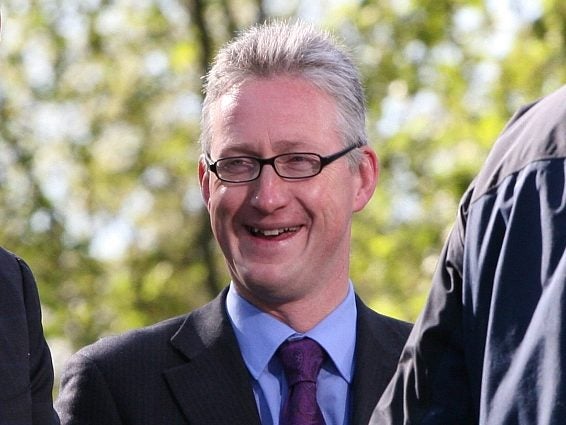
Former MP Lembit Opik has won a privacy complaint against The Sun after it published snaps of him “nuzzling” a woman’s “boobs” while on holiday and labelled him a “rat” in an article.
The Sun reported that Opik had sent the images to his former partner “accidentally” in a story headlined: “Rat Opik nuzzles lover’s Lembits,” published on 18 November 2017.
The piece was based on an interview with Opik’s former partner, with whom he has a young child, about the breakdown of their relationship. She claimed he sent the pictures to her in August 2016.
The Sun described the photos as a “saucy snap” and said Opik “…accidentally sent her pictures of him nuzzling [named woman’s] boobs as she lay on a sun lounger in a bikini”.
The article said Opik’s former partner had told the Sun journalist: “This picture shows their friendship has crossed a line.” It reported that Opik had been unavailable for comment.
Opik complained to the Independent Press Standards Organisation that the images were a breach of Clause 1 (accuracy), Clause 2 (privacy), Clause 6 (children) and Clause 10 (clandestine devices and subterfuge) under the Editors’ Code of Practice.
He said the images had been taken while he was on a private holiday with the woman and where they could not be seen by the general public.
He said there was no public interest justification for publishing the photograph, which had caused “severe intrusion” into his life, and his relationships with his former partner and their child.
Opik said the story was inaccurate because the woman pictured was not his “lover”, as the Sun had claimed, and he was not a “rat”. He said characterising him in this way was misleading, because it implied he was in a sexual relationship with the woman while still with his former partner.
He said he had notified the Sun that he did not consent to publishing the pictures, so it was inaccurate for the paper to report that he had been unavailable for comment.
Opik claimed he did not send the pictures to his former partner, and did not know how they had come to be sent.
He said they may have been sent by a third party or stolen and that in those circumstances the newspaper, via an agent, had published material acquired by accessing digitally-held information without his consent.
The Sun said the location where the photographs had been taken was irrelevant and that the salient point was what they showed.
It said being on holiday with someone was not private, that the image did not show any sexual activity and that it had been taken by an acquaintance, suggesting Opik did not regard the activity as private.
The Sun did not accept publication of the photograph was intrusive. It said Opik’s former partner was entitled to talk about the breakdown of her relationship with him given he had previously spoken publicly about it.
The Sun said its journalist had attempted to contact the complainant several times and that they received two emails from Opik after the newspaper had gone to print with the story.
It said the article’s characterisation of the complainant as the woman’s “lover” was not misleading – it clearly reported his ex-partner’s unproven concerns that he may have been unfaithful. It said its characterisation of Opik as a “love rat” was based on this.
IPSO’s Complaints Committee upheld Opik’s complaint on privacy grounds only.
It said: “The photograph had captured a moment which would have only been seen by a small number of people, and had been taken while the complainant had been enjoying a private holiday.
“Notwithstanding the complainant’s position that he was joking around with a friend and the fact that the photographs had been taken by a third party, they showed an intimate moment with a close friend, which had taken place in a closed courtyard within a private hotel with limited access to the wider public.
“The newspaper had suggested in the article that the photographs provided grounds to question the complainant’s position that they were ‘just good friends’, speculating about aspects of his private life…
“The complainant’s former partner had approached the newspaper in order to speak about the breakdown of her relationship; as enshrined in the Code, she had a right to exercise her freedom of expression. However, the story was focussed on the photograph of the complainant and the woman, and what the newspaper said the photograph showed.
“The complainant’s former partner had not been present on the holiday, and the photograph had been disclosed to her without the complainant’s consent.
“The publication of photographs have the potential to be particularly intrusive, and the newspaper had not identified a public interest that would justify the publication of a photograph of the complainant sharing an intimate moment, and the extensive speculation and discussion of this moment.”
Picture: Flickr/Bob Bob
Email pged@pressgazette.co.uk to point out mistakes, provide story tips or send in a letter for publication on our "Letters Page" blog

